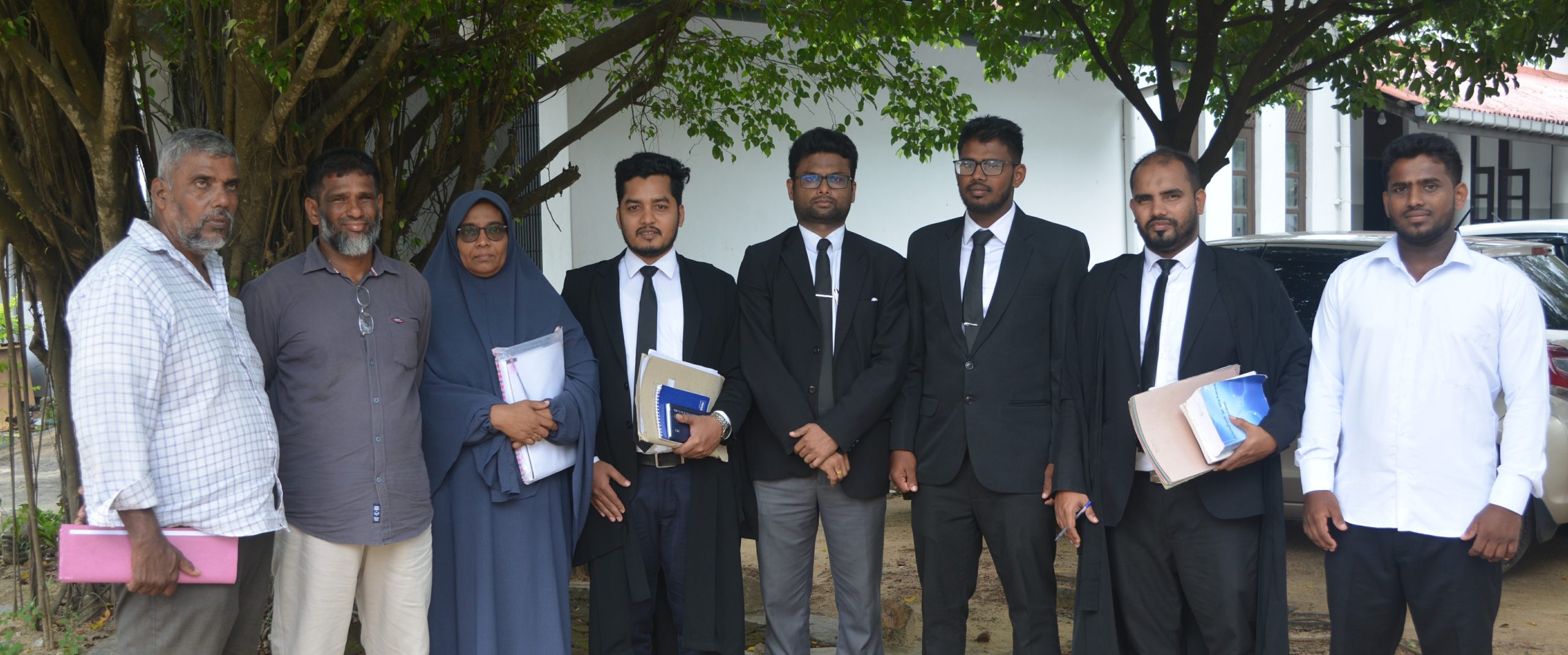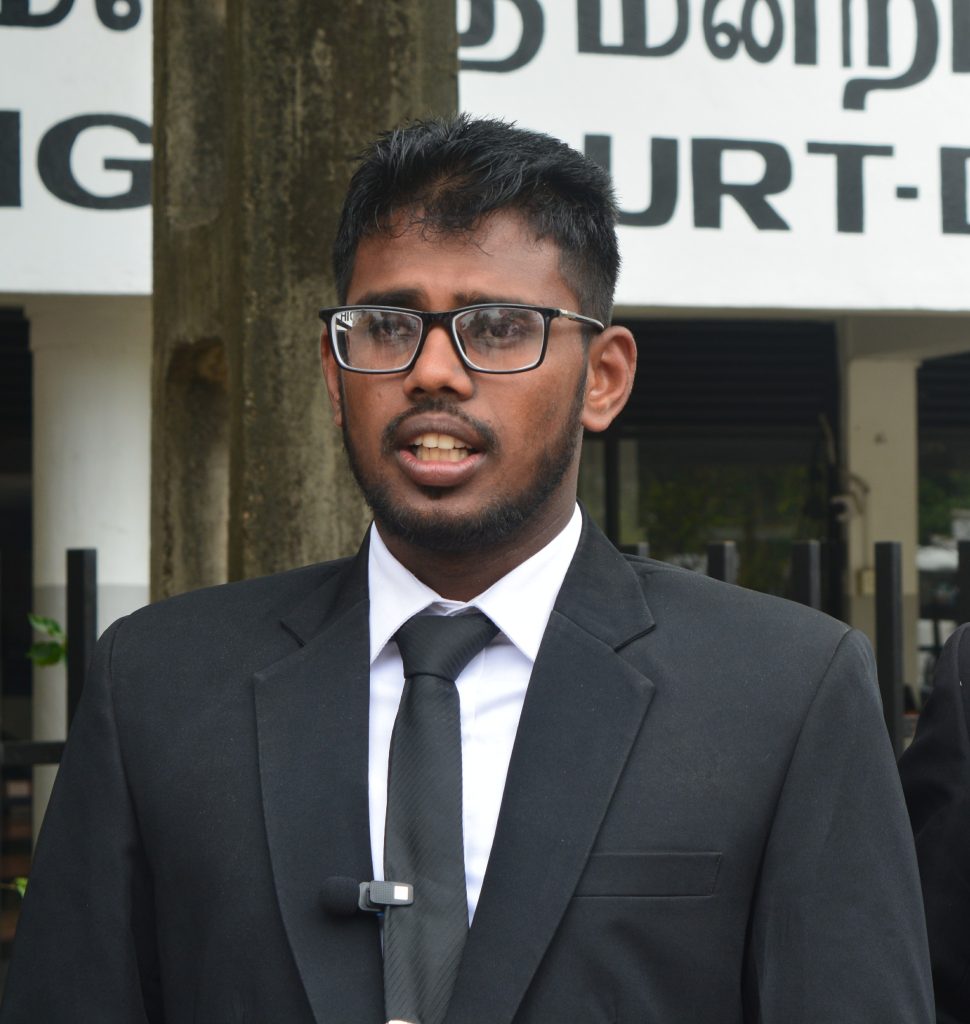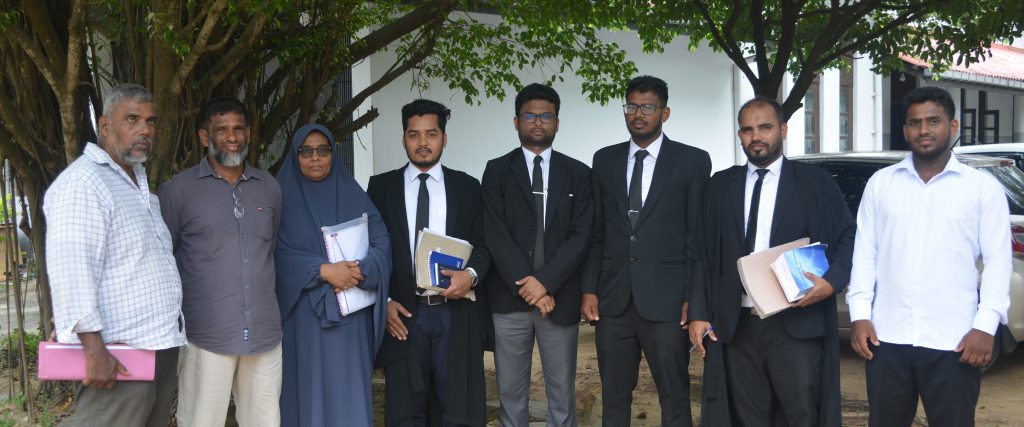
Poet and teacher Ahnaf Jazeem, victim of Sri Lanka government racist campaign, acquitted
By Sanjaya Jayasekera
The High Court of Puttalam last Tuesday (12) acquitted poet and teacher Ahnaf Jazeem of the charge against him framed under draconian Prevention of Terrorism Act (PTA), three and half years after his wrongful arrest. The acquittal is based on the failure of the State to prove the alleged offence, as none of the State witnesses testified against the poet. In spite of the established fact that the whole case was concocted, the Court refused to declare the prosecution as “frivolous and vexatious” and denied awarding any State costs to Ahnaf.

Ahnaf was arrested, at his home at Mannar, by the police Counter Terrorism and Investigation Division (TID), on May 16, 2020, in the climax of the anti-Muslim racist campaign of the government of former president Gotabaya Rajapaksa, as part of a broader onslaught on the democratic rights of the working people. The government endeavoured to link Ahnaf to Easter Sunday terror attacks of April 21, 2019, and to the “Save the Pearls” organization, one of the patrons of which was the human rights lawyer Hejaaz Hizbullah, who was also wrongfully arrested, detained for months and prosecuted in connection with the Easter Attack.
In view of the severe economic crisis the then administration of former president Maithripala Sirisena was confronted with and the presidential elections scheduled for November 2019, the post-Easter Sunday arrests, detentions and prosecutions of hundreds of Muslim youth and political leaders, and the continuous surveillance of Muslim community areas, heightened under Rajapaksha government, were intended to humiliate and intimidate Muslims and fan racialist sentiments within a section of vulnerable Sinhalese majority of the island.
With the subsequent revelations of the facts behind the Easter Sunday Attack and of the complicity of the ruling elite in the attack or in not preventing the attack well-known by the intelligence apparatus, people largely came to cognize the true nature of the racist crack-down upon Muslims, intended to divide the working class on ethnic lines. These revelations along with the unprecedented economic and financial crisis and corruptions widely discredited Rajapaksha government, leading to the mass struggles (also called “Aragalaya” in Sinhalese) of the April-August 2022, that toppled the regime in last August.
The eldest son of a poor farmer’s family, Ahnaf was 26 years old when arrested, and was employed as a Tamil language teacher in a private international school named, “School of Excellence”, whose dormitory, where Jazeem stayed with about 15 students, was housed temporarily in a building owned by the “Save the Pearls”. Ahnaf had by then published a poetry anthology titled Navarasam (Nine Moods). The arrest notice alleged him for “publishing books and teaching students on (Muslim) extremism and racism“. This reference to the book was to Navarasam.
Ahnaf was unlawfully detained under the hand of Rajapaksha for 13 months and remanded for another 6 months, until he was bailed out by the High Court in mid December 2021. During the period of detention, he was kept incommunicado for several intermittent weeks, denied meeting with parents or lawyers for months, physically and mentally tortured and forced to confess and admit allegations which TID leveled against him in Court reports. TID kept the poet tied to a table in handcuffs, day and night, for over five months.
Ahnaf’s lawyers filed a fundamental rights case in the Supreme Court of Sri Lanka in April 2021, along with authoritative translations of the poetry book. The Attorney General filed the indictment against him in mid August 2021 under Section 2(1)(h) and 2(2)(ii) of the PTA. The charge had dropped the TID’s allegations made in respect of the poetry book, as by then it was widely known that the poetry book contained nothing advocating racial violence or Muslim extremism. Ahnaf was charged for “indoctrinating” his students with ideas “to arouse feelings of racialist or religious or communal ill-will or hatred between different races or religions”, during a two-month period at the end of 2019. If the offense was proved, Ahnaf would have been subjected to imprisonment upto 20 years.
During the trial, State led evidence of the principle of the School of Excellence and 4 of Ahnaf’s students. One of the students was even declared by the State counsel to be an adverse witness. Most revealingly, another student testified to the fact that the statement obtained from him was not read out to him before his signature was taken on the statement. Sri Lanka police, especially the TID and the Criminal Investigation Department (CID), are notorious for obtaining forced confessions/statements from arrestees, which would be used against them in court under the PTA. Thus, the acquittal was made under Section 200(1) of the Criminal Procedure Code, which dispenses with the requirement of the defence opening its case.

While knowing very well that the case against Ahnaf is a frameup, as a cover-up, the ministry of defense enlisted Ahnaf in a list of designated persons related to terrorist financing for two consecutive years since 2022, and confiscated his bank accounts, where there was no penny. In spite of appeals, Ahnaf still remains in the blacklist, and so, is unemployed.
Ahnaf’s freedom was secured by the masses. The campaign, “Defend Poet Ahnaf” initiated early 2021 by the Action Committee for the Defence of Freedom of Art and Expression (ACDAE) and the World Socialist Web Site for the immediate and unconditional release of Ahnaf gathered widespread support from academics, journalists, artists, working class youth and other sections of the middle class, cutting across ethnic divisions. A number of local and international organizations, including the United Nations Working Group on Arbitrary Detention, supported the defence campaign and called for the poet’s immediate release.
The betrayal of the unprecedented mass struggles of 2022 by the trade unions and the pseudo-left paved the way for the parachuting of Ranil Wickremasinghe as the President following Rajapaksa’s ousting. Committed to saving the crippled financial system, Wickremasinghe entered into a loan deal with the International Monetary Fund (IMF) and launched severe austerity measures which included import restrictions, price hikes, drastic lowering of the income tax threshold, privatization, commercialization, pension aimed domestic debt restructuring and large subsidy cuts.
To suppress the anti-austerity protests by the working people and students, Wickremasinghe brutally deployed military and the police, arresting several hundreds. Social media activity was highly censored and activists and journalists were attacked, arrested and prosecuted. Far right racist elements were given a free hand to contain social unrest. The whole parliament has been largely discredited among the working class, farmers and a significant section of the middle class.
This greater unpopularity of the whole ruling establishment and the constant watch by the masses of the development of Ahnaf’s prosecution prevented the government interfering with the witnesses, so that the truth finally prevailed. History is witness to the fact that, in a different political climate, “truth” would have been shown to be proven otherwise.
Few weeks back, another victim of the same anti-Muslim campaign, activist Ramzi Razeek was discharged from the case filed by the CID. Arrested one month prior to Ahnaf, Razeek was kept in remand for five months. Later, in mid November, the Supreme Court declared that his fundamental rights had been breached by the government and awarded rupees one million compensation. Learned from recent mass struggles, the court has stepped in to save the system, not taking the risk of the people losing its last bit of trust in every organ of the parliamentary democracy.
The ruling class is well aware that it sits on a social powder-keg. As with other right-wing governments of the world, the Sri Lanka government has no option but resorting to military police measures to face the rising militant class struggles. Defence of the democratic rights is a task of the working class, and that requires the uprooting of the rotten capitalist political system. This needs the independent mobilization of the working class and all those who defend democratic rights around committees of action that will unite the working class across ethnic lines and organize industrial power to win political power to implement socialist policies.
[This article was originally published by thesocialist.lk here on December 17, 2023]

